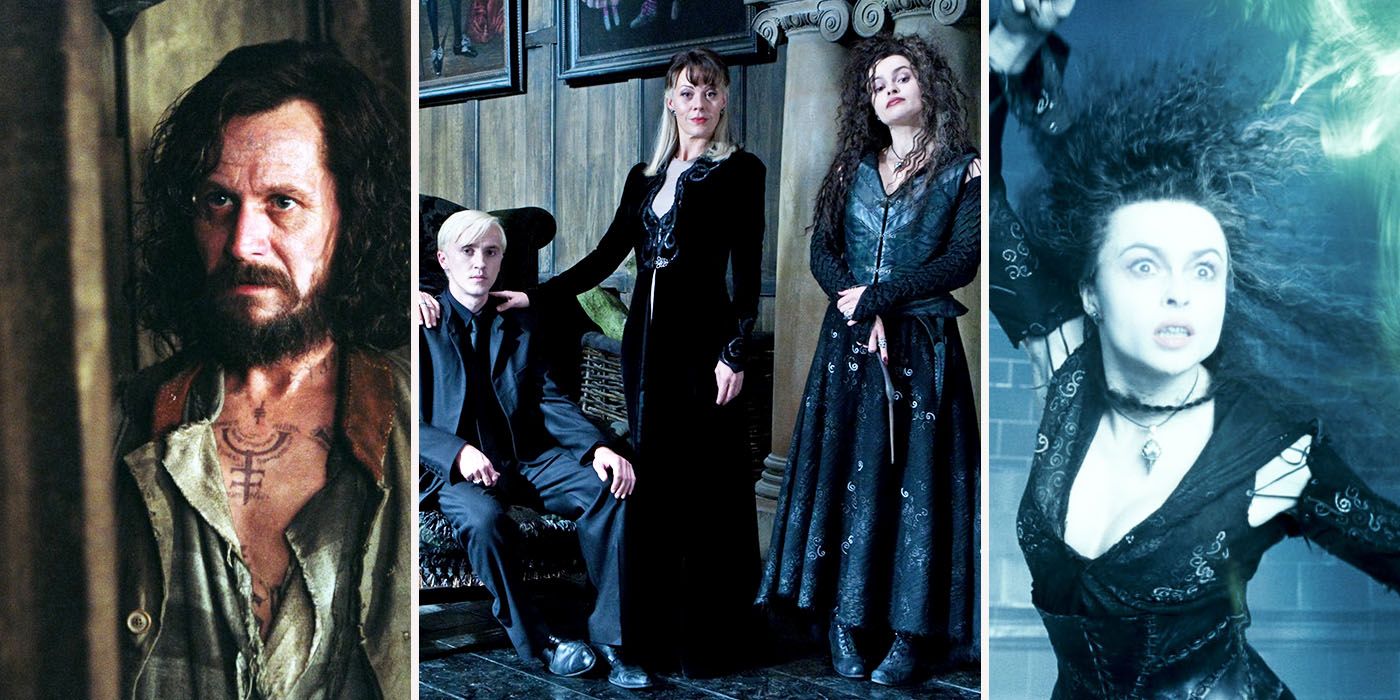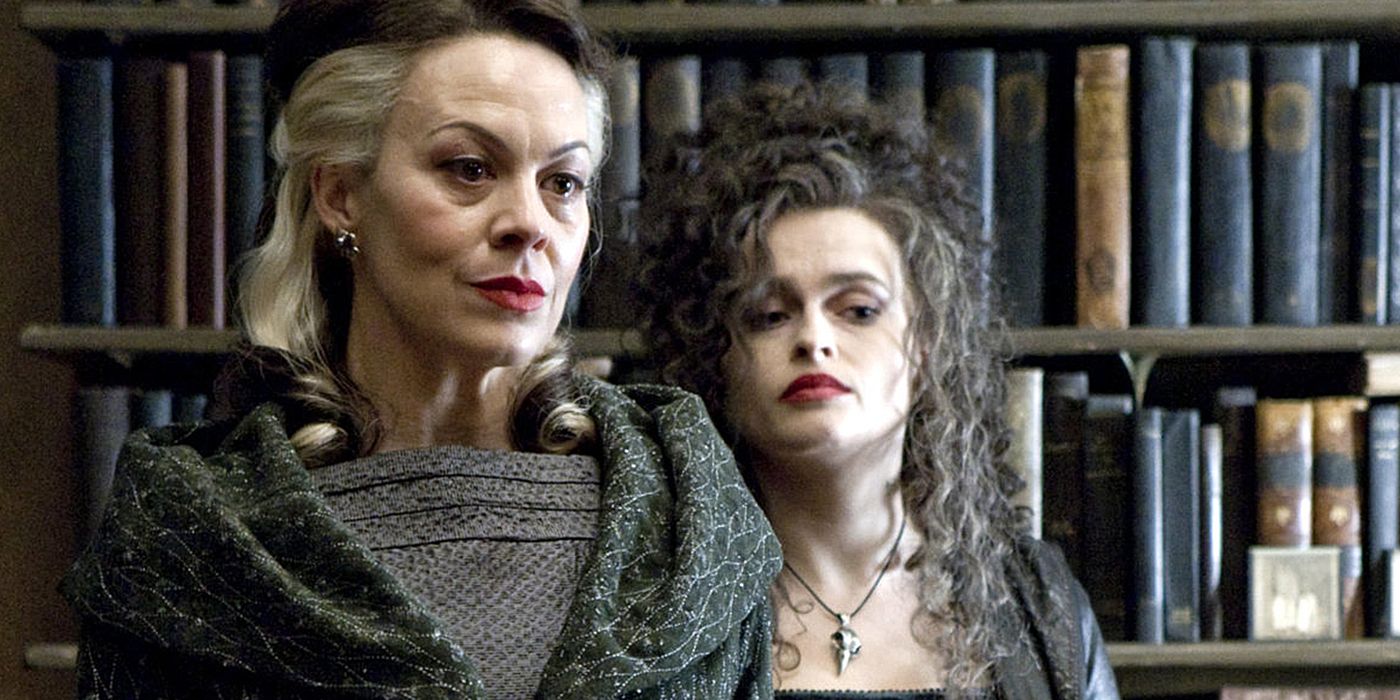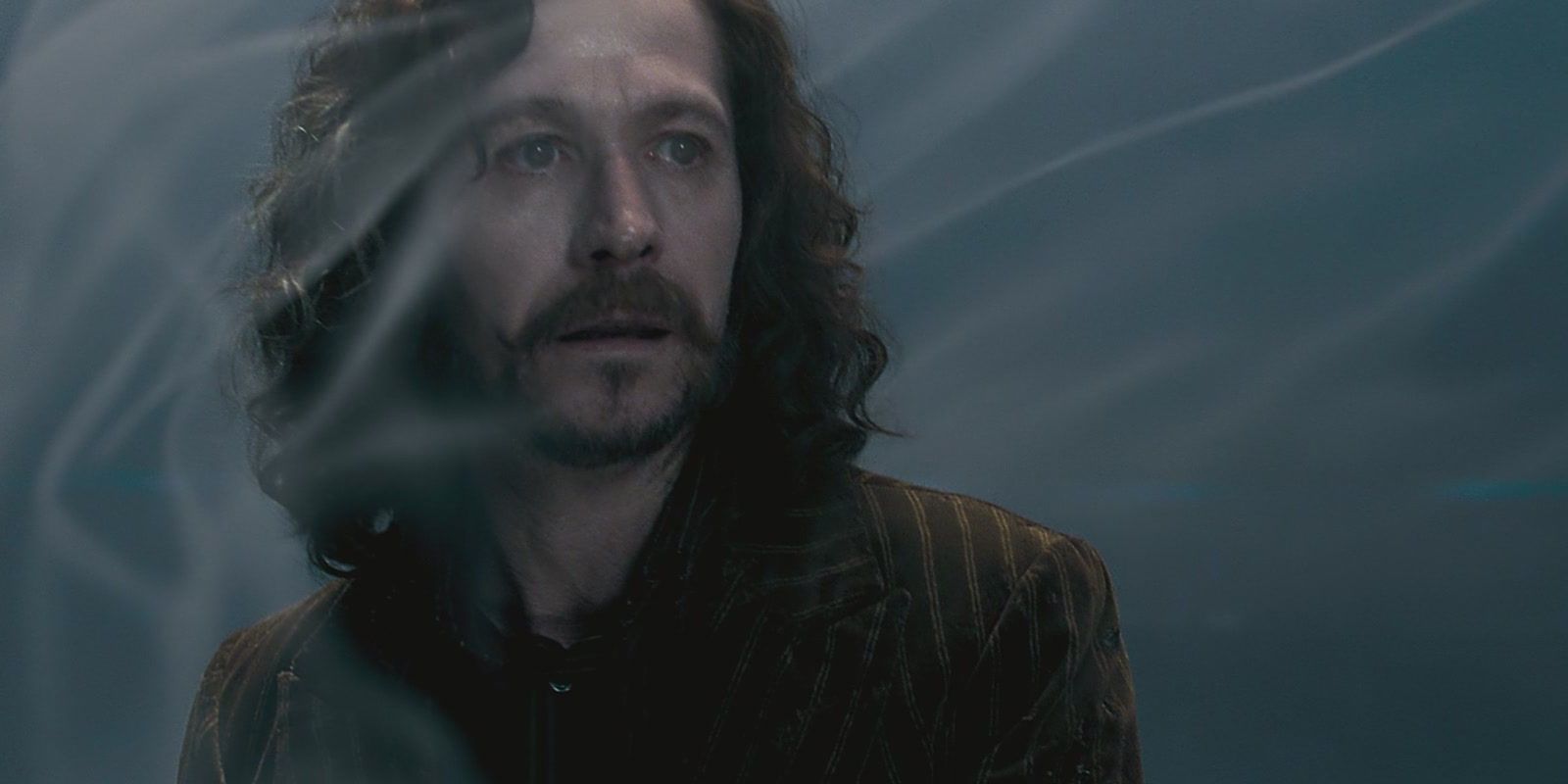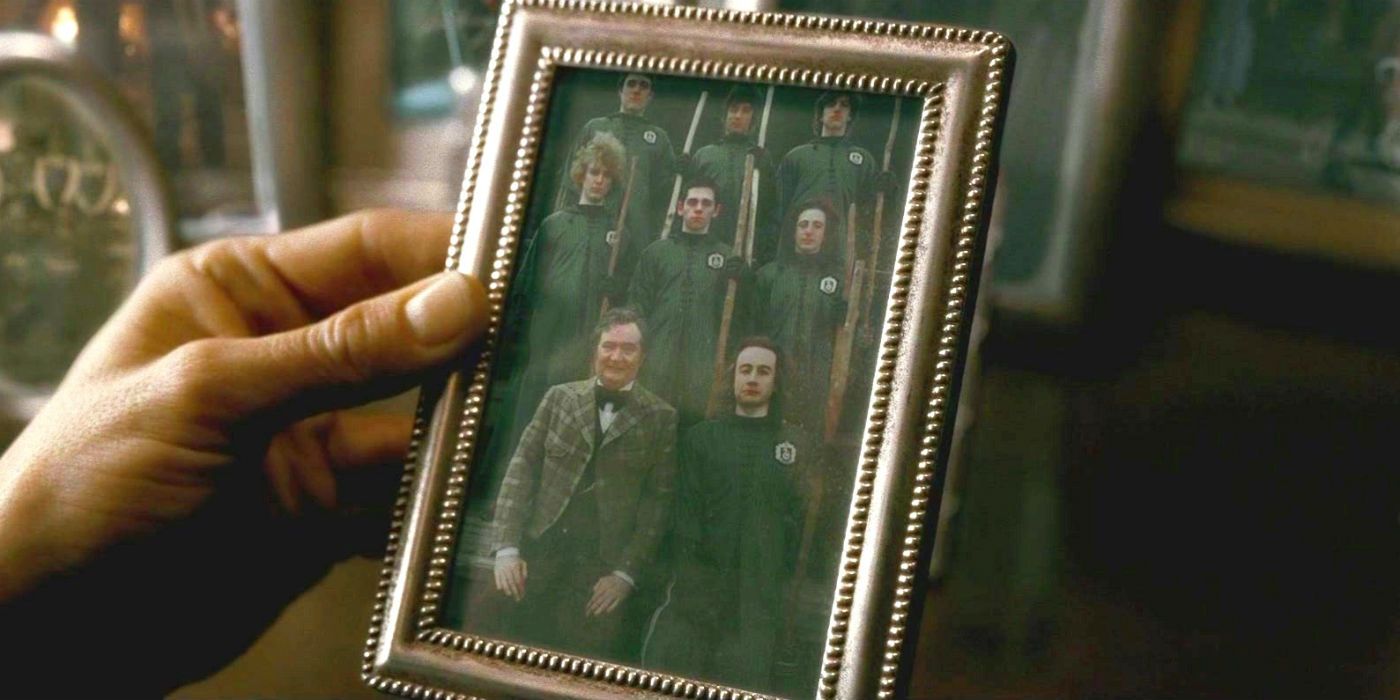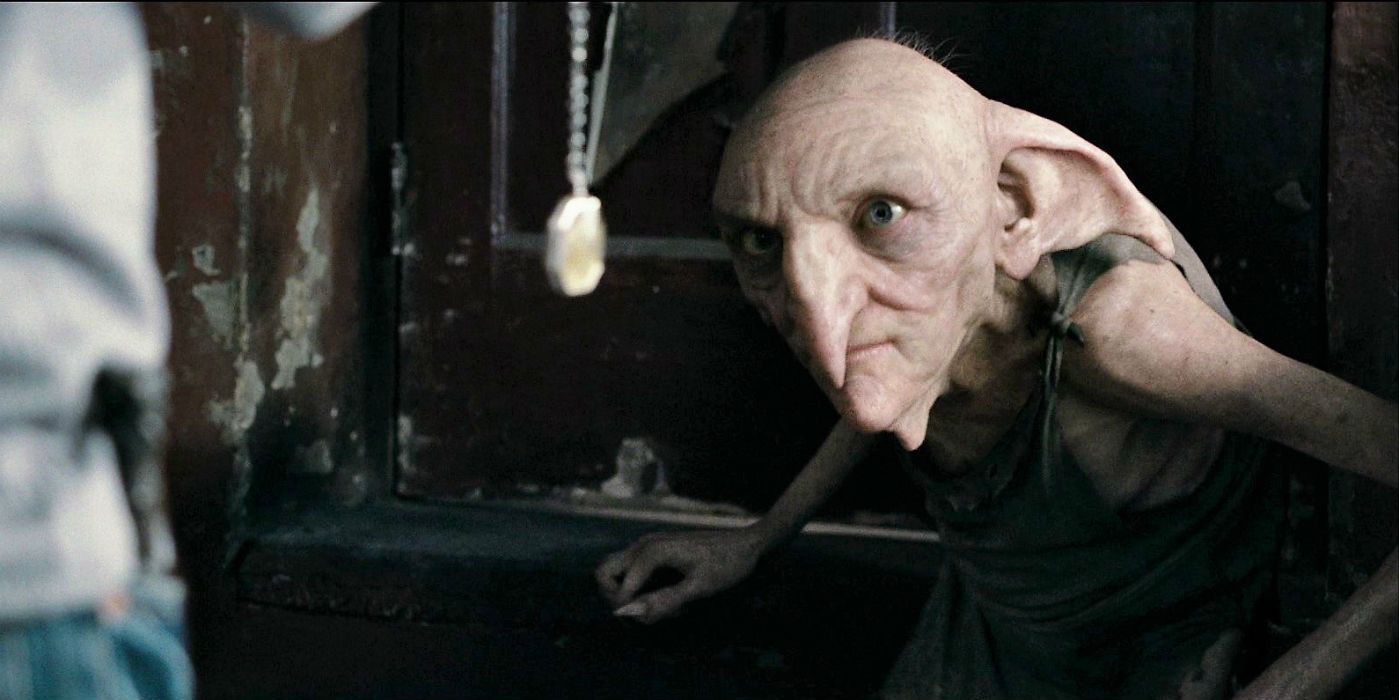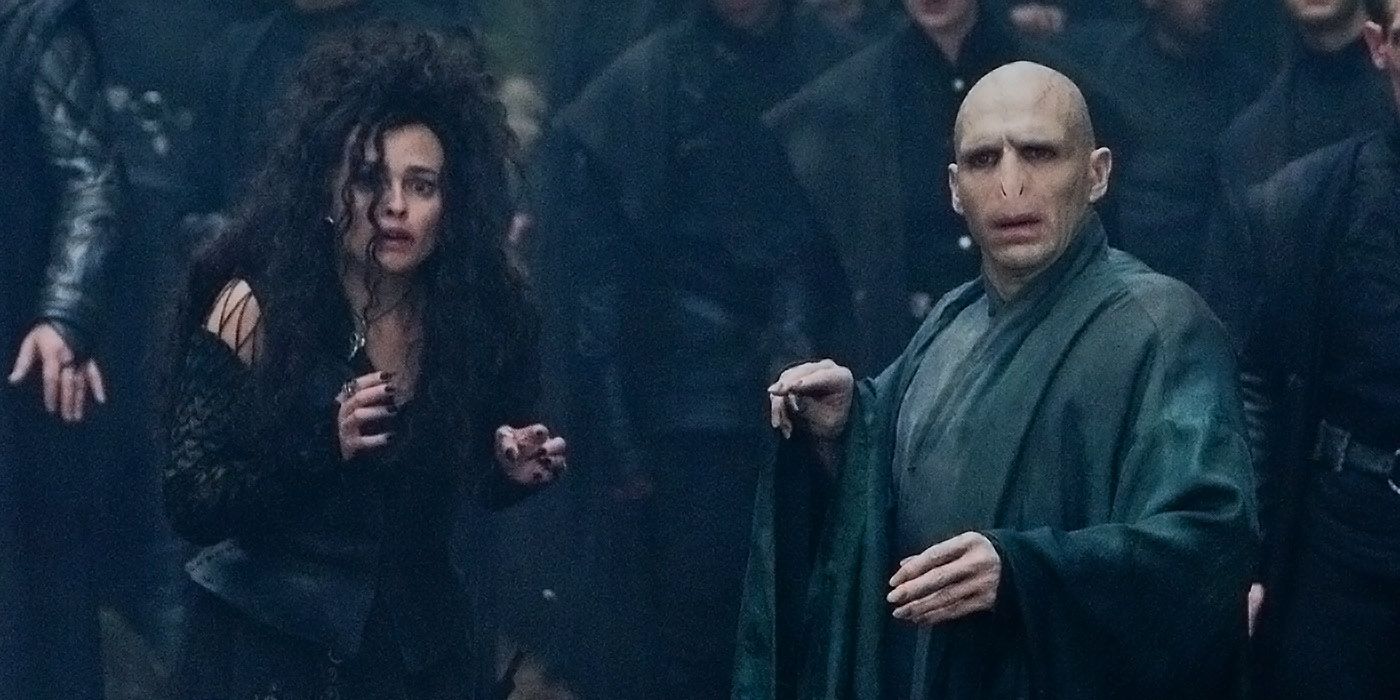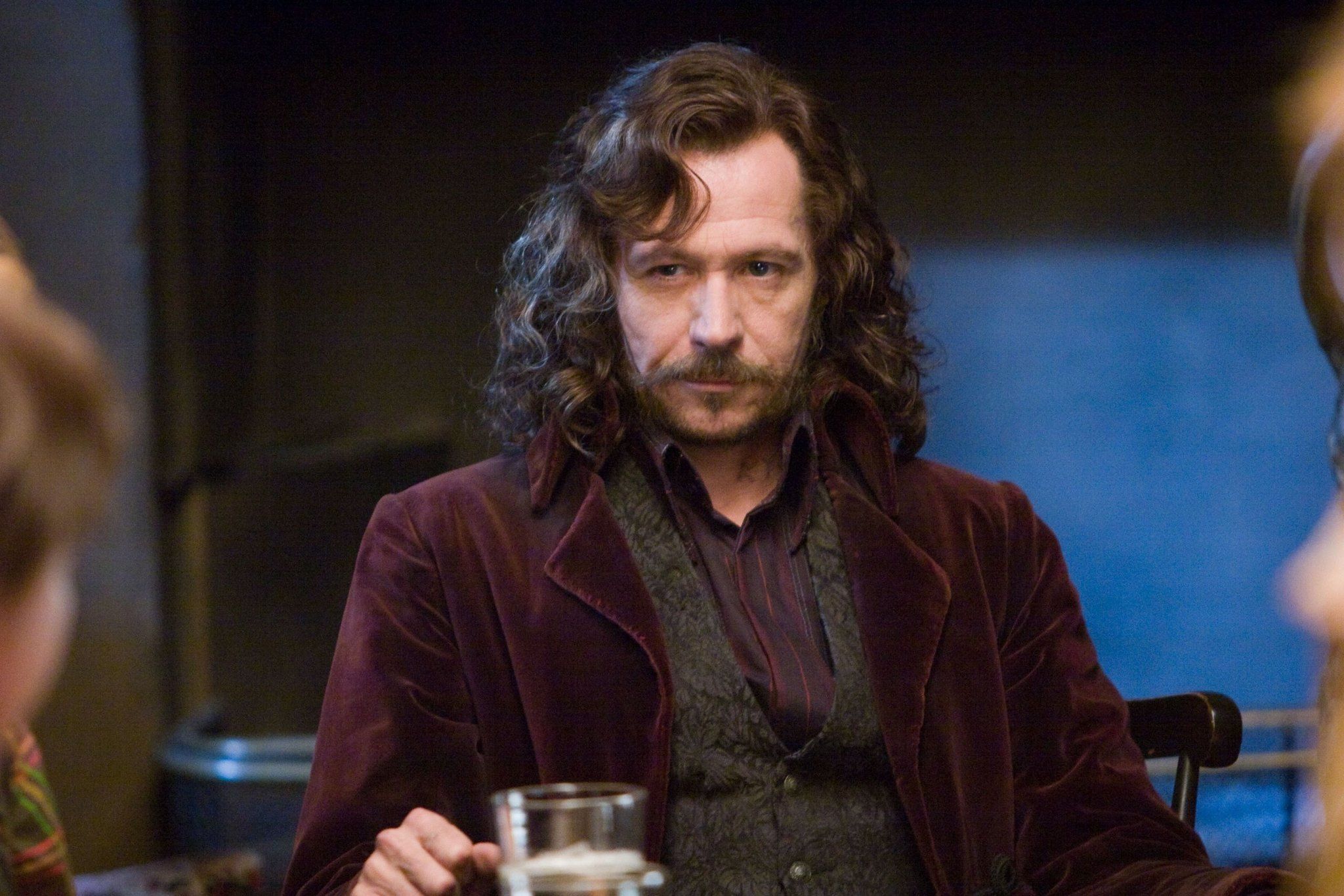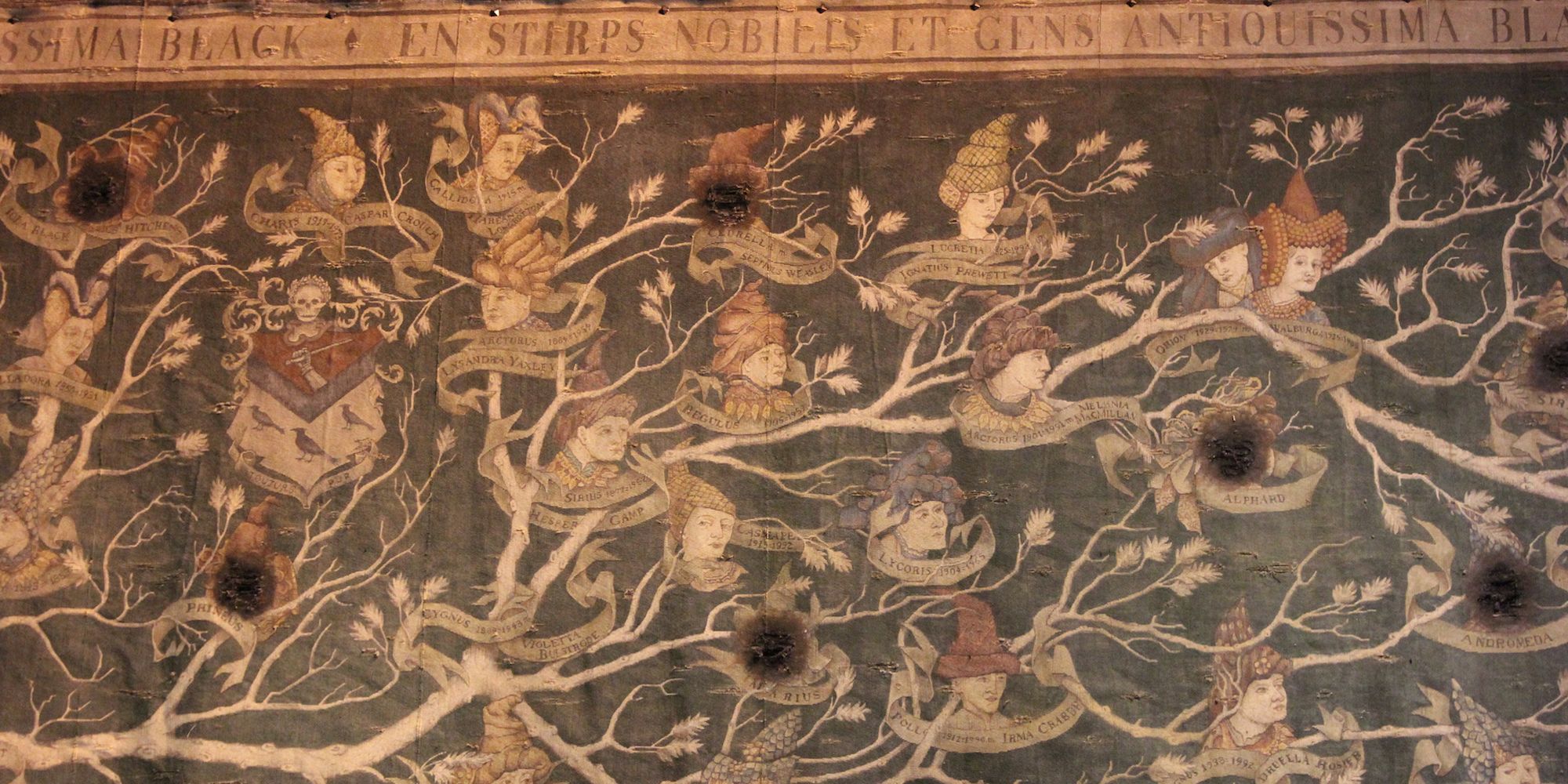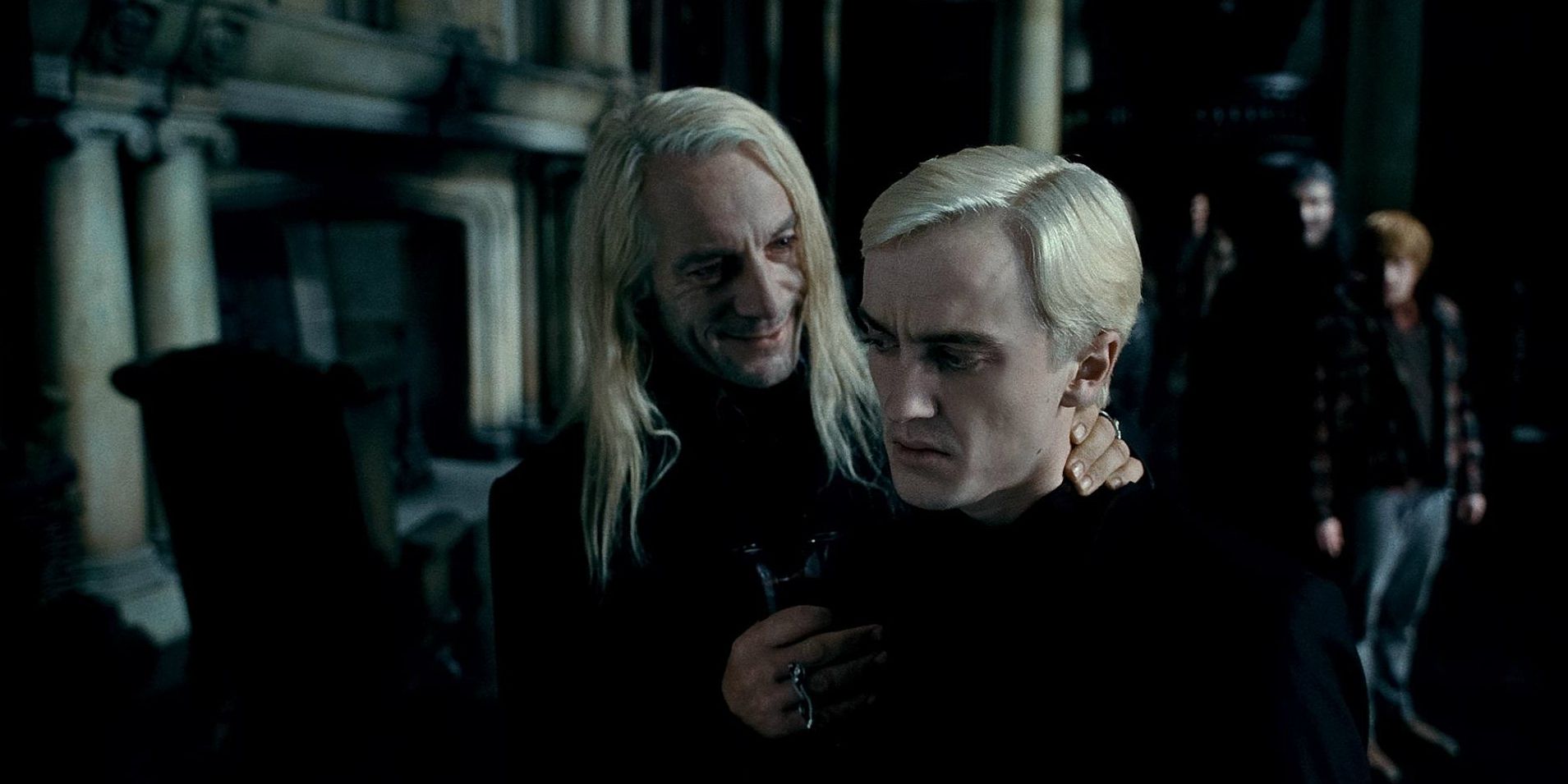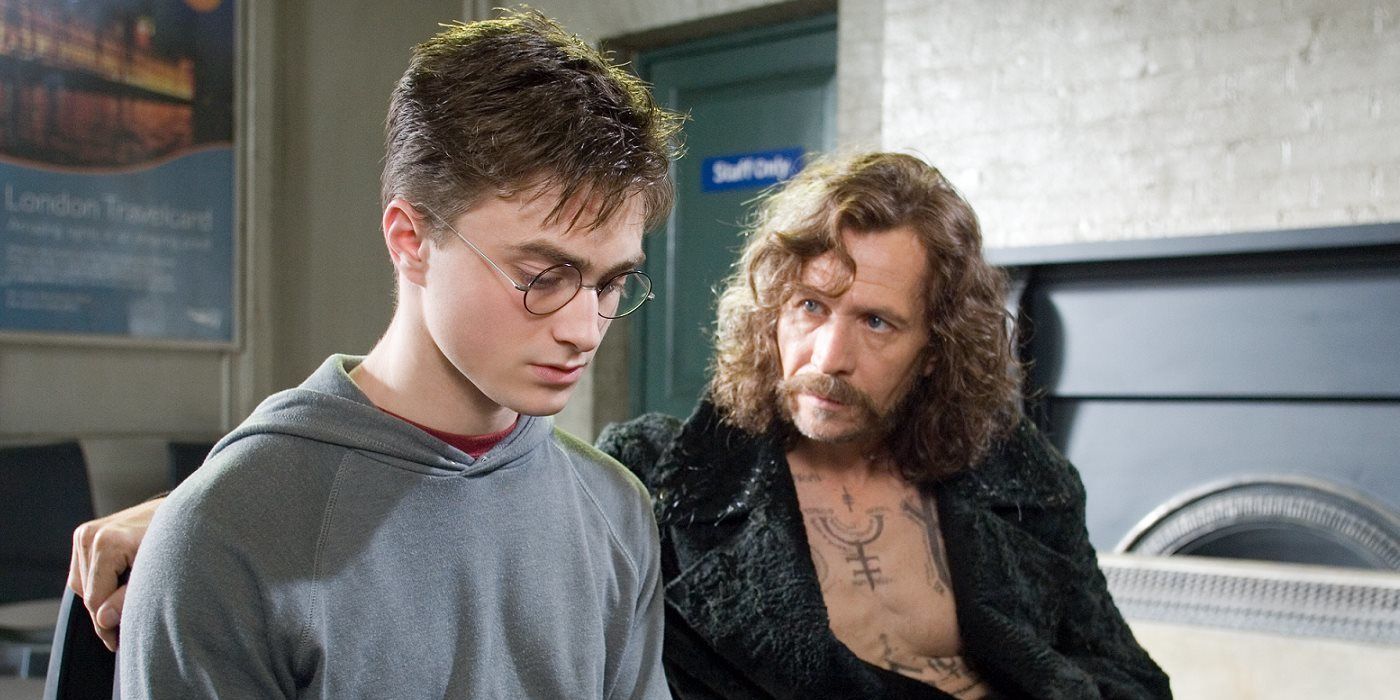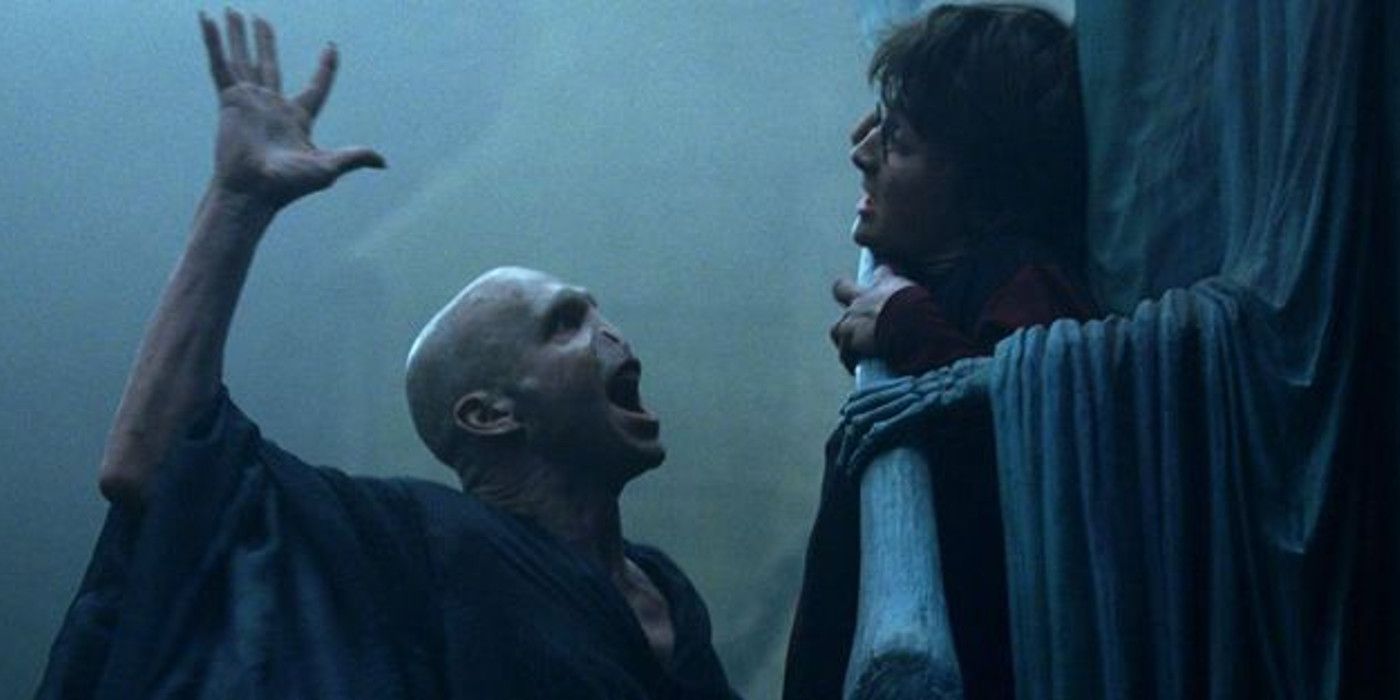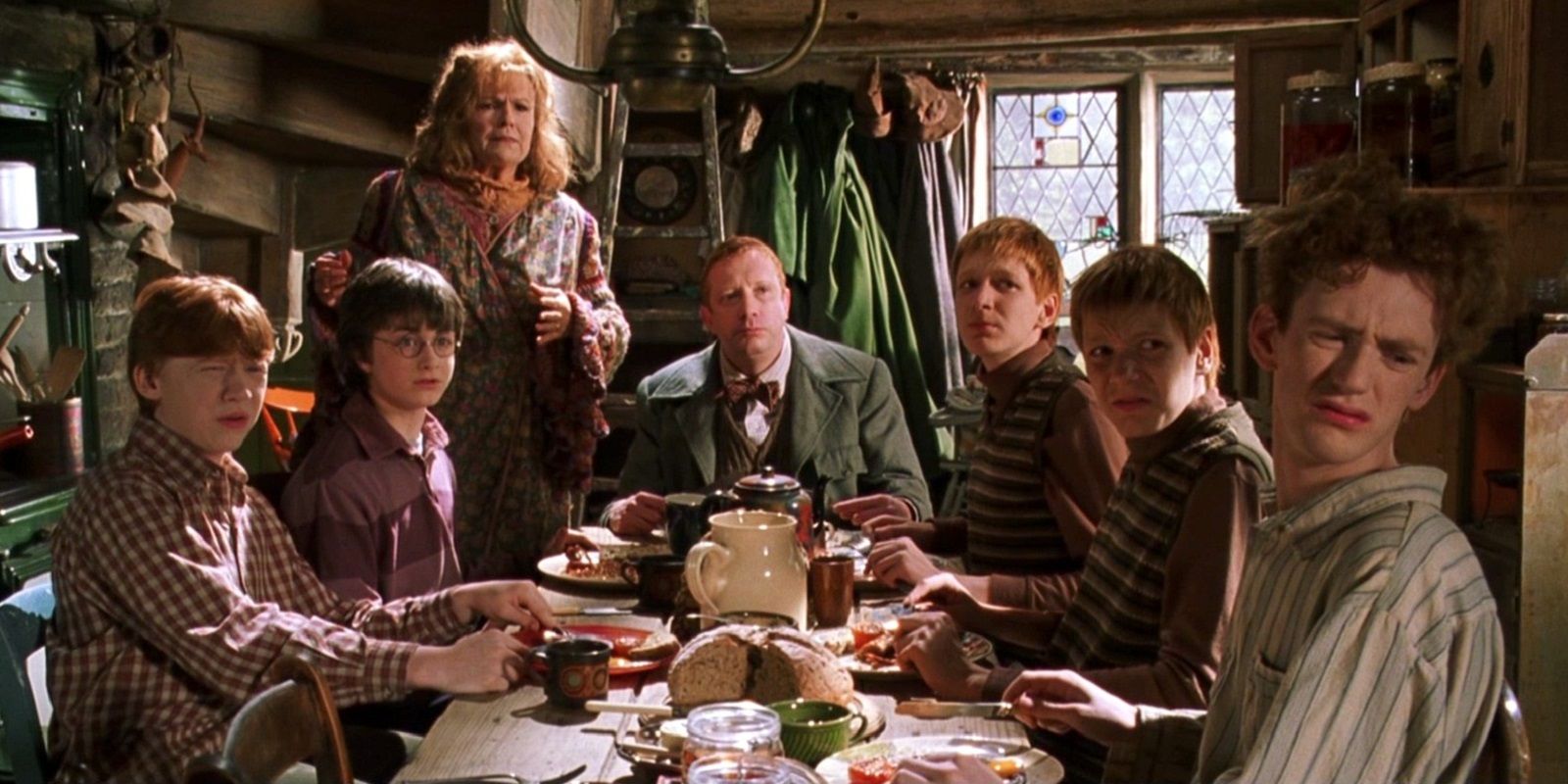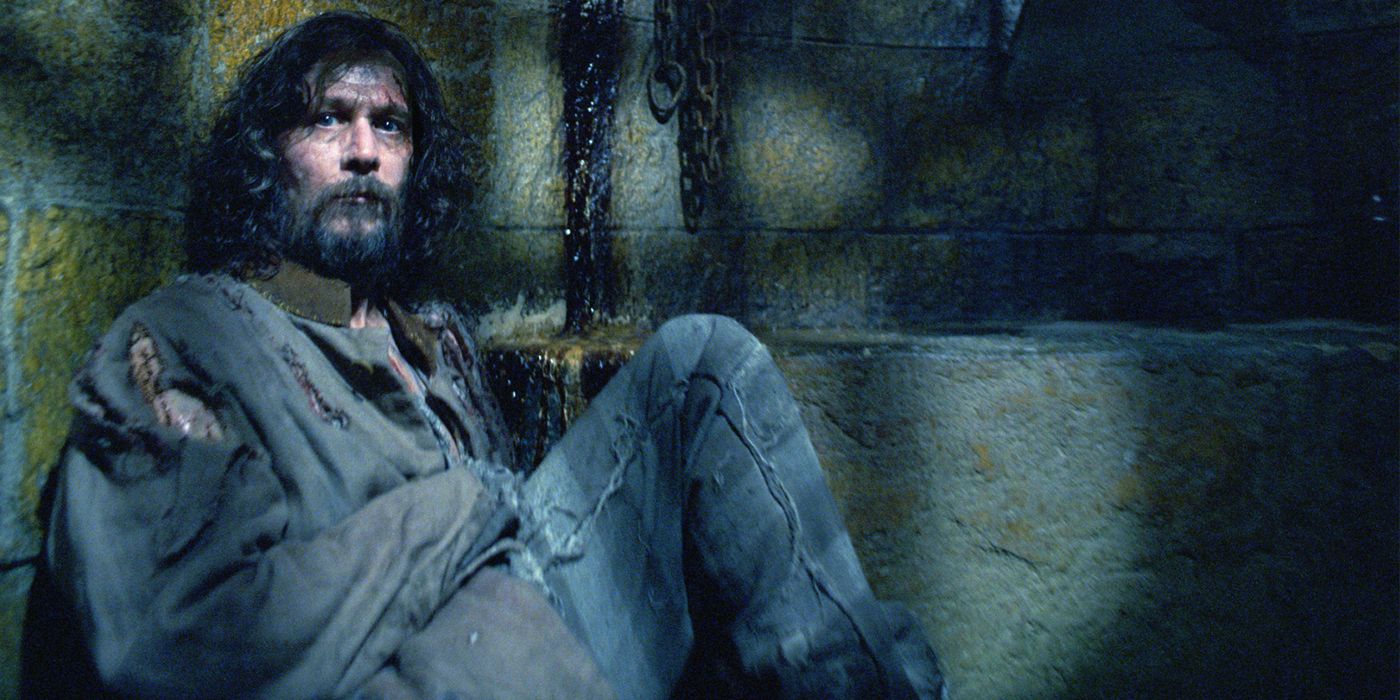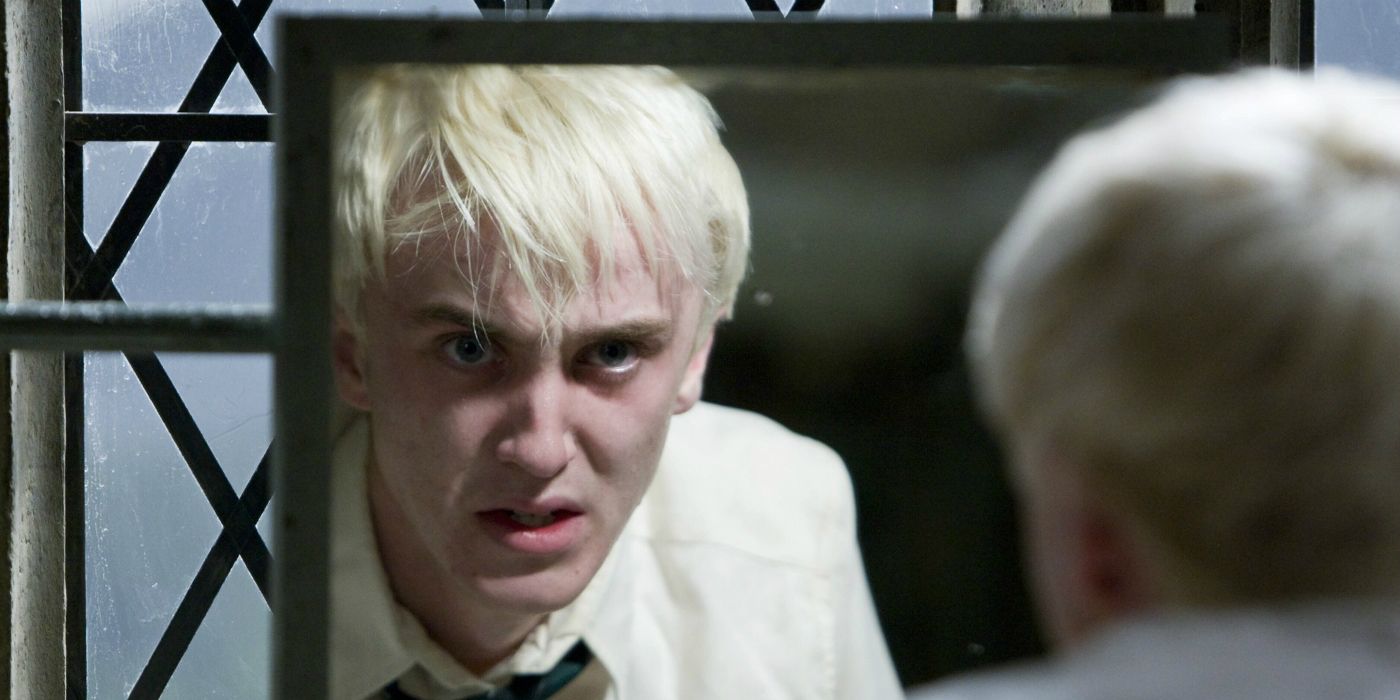The Black family is legendary in the world of Harry Potter, although that’s not necessarily a positive thing. This is a family who believes that pure blood is the only way the wizarding world can prosper, and is willing to do plenty to see that world created. They’re privileged, petty people who aren’t known for being particularly kind to those that they meet, especially if they don’t have "pure blood."
The Black that we know best, Sirius, is actually outside of the mold of his family. He was disowned at a young age, in large part because he didn’t believe in the "pure blood" mantras that were practiced by his family. He had a miserable home life, and left the family at his first opportunity. Of course, we also know a little bit about Sirius’s younger brother, Regulus, as well as his mother.
Most of the information we get about the Blacks comes during Order of the Phoenix, when the Order is housed in Grimmauld Place, the Black family home. The Black family is an important one in Harry Potter, but there’s much that’s still unclear about them. To remedy that, here are 15 Things You Never Knew About The Black Family.
One of the Oldest Families in the Wizarding World
The Black family is an ancient one, and its history is part of what makes it so entitled. The members of the Black family that we meet throughout the Harry Potter series are all in some way influenced by the Black’s extended history. The pure-blooded family believes that it must keep itself that way in part because of their long history.
Blacks are traditionally sorted into Slytherin, and those kinds of traditions carry a ton of weight when the family history is so extended. Sirius' sorting into Gryffindor was an early sign that he didn't fit in.
Of course, being from an ancient family doesn’t really give anyone an excuse to act haughty and stuck up, or to be bigoted against others to the point of wanting them killed or enslaved.
Most Blacks Die Young
Wizards tend to live pretty extended lives. The magic inside of them leads them to longer lives than their muggle counterparts. Having said that, many Blacks actually have pretty short lifespans. The average life expectancy of a member of the family is 59.5, which is young, even for a muggle. Many have speculated that the relatively short lives that Blacks lead are caused by their regular inbreeding (more on that later).
Of course, the Black children that we meet and know the best died at young ages for reasons that had little to do with inbreeding. Regulus died attempting to take down Voldemort and his Horcruxes, and his brother Sirius was killed by Bellatrix, their cousin.
Maybe the deaths of the Black family at young age had nothing to do with inbreeding and poor health. Maybe it was the reckless impulses that governed the Black family that led to their premature demises.
They Practiced Inbreeding
Because of their belief in pure blood, the Blacks practiced inbreeding for generations. Although it seems like an incredibly vile thing, it was once a fairly normal practice among ancient nobility, even in our world. There was a long-held belief that blood should remain pure, and Rowling ran with that when she began to create the world of Harry Potter. The Blacks' belief in their own purity almost necessitated inbreeding because of how few pure blooded families there were in the wizarding world.
Even so, Blacks sometimes seemed to inbreed more than was necessary, and with relatives who were much closer to the family than they had to be. In fact, Sirius’s own parents, Walburga and Orion Black, were second cousins. In the Black family, inbreeding was the rule, not the exception.
Although it seems like Sirius turned out just fine in spite of his overly pure blood, it’s easy to see how a family could be screwed up by generations of inter-marrying.
Sirius Believed that Regulus Was Killed by His Fellow Death Eaters
Regulus is one of the many secret heroes of the Harry Potter universe. As we eventually learn from Kreacher, he was the first to discover that Voldemort had separated his soul into pieces and placed it in Horcruxes. Although Regulus found himself incapable of destroying all of these Horcruxes before he met his own end, he left behind clues that helped Harry and his friends finish the job.
Sirius always believed that Regulus had died because he had gotten too deep with the Death Eaters and then tried to leave the group. Sirius believed that the Death Eaters had tracked Regulus down and killed him.
Regulus did have second thoughts about being a Death Eater, which led him to discover Voldemort’s Horcruxes, but he wasn’t killed by his fellow Death Eaters. Instead, he met his end in the cave where Dumbledore and Voldemort found the locket, which Regulus had swapped out with a fake years before.
The Blacks Supported Voldemort's Goals
The Black family supported the purity of the magical race, and many of them approved of Voldemort when he initially rose to power. After all, this was a wizard who promised that wizards could dominate over muggles, and eliminate all those without pure blood from existence.
Eventually, though, many in the Black family found Voldemort too extreme for their tastes. Voldemort’s willingness to wage all-out war, and kill anyone in his way was just too much to handle, even for families like the Blacks.
Although some members of the Black family joined Voldemort, including Sirius’ own brother, most of them simply did nothing to stand in his way. They didn’t want the kind of violence that Voldemort and his followers perpetrated, but they weren’t opposed to the change that he brought either. The Blacks were bystanders. They saw something that they knew was wrong, and did nothing to stop it. That alone is an immoral act.
At Least One Black Has Been Disowned in Every Generation
Even casual fans of the Harry Potter universe may be aware that Sirius Black was disowned by his family after he ran away from home. This may have seemed like an extraordinary step for a family to take against one of its own members, but the Blacks actually did it pretty regularly. In fact, at least one Black was disowned in every generation of the family dating back to the Middle Ages.
Among the many members that were disowned, most of them were expelled from the family because they associated with muggles - typically through marriage. Of course, some members were also disowned through no fault of their own, because they were born as squibs.
The Blacks' callousness, and their willingness to disown any member who steps out of line for any reason, suggests that the family was all about the name rather than the people who carried it.
The Blacks Scrubbed Squibs and Muggles from Their Family Tree
The Blacks claimed that their family tree was completely devoid of non-magical people for centuries, the reality was much simpler than that. Whenever a member of the Black family married a muggle or mingled with one in any significant way, they were immediately scrubbed from the family. The same is true of squibs, who were members of the family that had Black blood, but couldn’t do any sort of magic like Filch.
Because the Blacks scrubbed these members of their family from the tree, they could legitimately make the claim that they were a family composed solely of wizards and witches. Of course, if someone were to actually examine the bloodlines of any pure blooded family, including the Blacks, they would realize that there were plenty of non-magical folks inside of it. In Order of the Phoenix, the Black family tapestry was shown, complete with scorch marks where undesirable family members used to be.
The Blacks were good con-men. They were so good, in fact, that they managed to convince themselves that they were totally magic, even though they most definitely weren’t.
They're Members of the Sacred 28
Although it’s never mentioned in the actual series, the "Sacred 28" refers to 28 families who still had pure blood in the 1930s. These families, ones like the Blacks and Malfoys, were likely important to Gellert Grindelwald during his mission to purge the world of wizards without pure blood. Interestingly, the Weasleys are included in the Sacred 28, even though they deplore this inclusion because of their interest and admiration for the muggle world.
The world of Harry Potter is deeply troubling partially because things like the Sacred 28, a designation which seems to suggest that these families are in some way more valuable than their mixed blood counterparts. One of the main points of the entire series is that pure blood is not necessarily better. In fact, it may lead to more trouble than it’s ultimately worth.
Members of the Sacred 28 may get a fairly cool distinction, but it’s also led them to health problems and early deaths, all in the name of keeping the magical gifts they possess to themselves.
Their Male Line Has Ended
The Black family has existed for centuries, and their family name is one of the oldest in the magical world. Perhaps fortunately, that name has died out as of the end of Harry Potter. Sirius’s death represents the end of the male line, as he failed to produce any children who share his name. Of course, because all pure blooded families are related, there are still plenty of powerful witches and wizards with Black blood in their veins.
Still, for a family like the Blacks, the idea of the end of their line would be totally repugnant. Fascinatingly, that his family would hate the ending of their bloodline probably only made the idea of being the one to end it more appealing to Sirius. His last act of defiance against his own family was his death, which ended the Black legacy, and made way for a better world where bloodlines mattered far less.
The Family Motto Means "Always Pure"
The Black family motto is Toujours Pur, which means “Always Pure” in French. This motto is reflective of the way that the Black family sees itself, not through personality or values, but through "blood purity." The Black family is uninterested in being brave, valiant, or honest. All they have ever cared about is preserving their own purity.
It’s easy to see why Sirius was so frustrated by the Black family’s complete apathy toward any sort of values. These are nasty people, and they value their own blood over all else. It may seem cruel for a young boy to leave his family forever, but in Sirius’s case, it actually seems appropriate.
The best thing that ever happened at Grimmauld Place happened after most of the Black family had died out, and had been replaced by people who were willing to fight against everything the Blacks believed in - the Order of the Phoenix.
Regulus Learned About the Horcruxes Because Voldemort Let it Slip
Voldemort is an arrogant man, and that is ultimately an enormous factor in bringing him down. Secretly, Voldemort wants approval more than anything else. He wants people to look at all that he’s accomplished, and admit that they’re impressed by it. Of course, Voldemort is most proud of his Horcruxes; his last secret, the way he manages to defy death.
Voldemort is so proud of this particular accomplishment that he unintentionally brags about it whenever he gets the chance. In the graveyard where he is reborn in Goblet of Fire, he says that he knew he would rise again because he took steps to prevent his death - a direct suggestion of Horcruxes. It’s also implied that this is not the first time that Voldemort has hinted at the Horcruxes.
There’s a suggestion that Voldemort made a similar comment, which gave Regulus a chance to track down one of them.
They're Very Good Looking
As a rule, the many members of the Black family were blessed with good looks. Most of them were tall and thin, with fairly pale complexions and dark hair. In this way, Sirius was very much like the rest of his family. In the books he is described as being extraordinarily handsome as a young man, though his time in Azkaban aged him far beyond his years.
The Black family insisted on its own purity to such a great extent that it practiced inbreeding. This practice was obviously a foolhardy one, but it’s also one that may have kept the Black family’s appearance fairly consistent. Because they rarely bred with anyone who wasn’t already a member of the family, they produced children who looked a lot alike.
The Black family’s good looks did little to make up for their terrible personalities, but it’s a fascinating fact nonetheless.
They're Related to the Weasleys and Malfoys
All pure blooded families in the world of Harry Potter are in some way related, because there are so few of them, and many of them were once quite interested in maintaining their own purity. As a result, the Blacks are related by blood or marriage to pretty much every other prominent family in the wizarding world. Arthur Weasley is Sirius’s second cousin, and Narcissa Malfoy is also a relative of Sirius’. Tonks' mother, Andromeda, was the sister of Narcissa and Bellatrix, as well.
These families have been marrying their children off to one another for generations, so it’s impossible for them to remain separate from one another. Although it isn’t discussed very often, the wizarding world is actually pretty small. The muggle world is much larger, which explains why many wizards often end up marrying muggles or those without pure blood.
The Blacks, and many other ancient families, tried to keep their family pure, which led to huge problems. When you try to maintain your purity, families become inextricably intertwined.
Most are Named After Stars or Constellations
Sirius may have seemed like a strange name to book readers, but by the time he was introduced, fans had learned not to question the strange names that dominated the wizarding world. Sirius, and many other members of the Black family, are named after stars or constellations. Sirius is named after the brightest star in the constellation Canis Major - "the greater dog" - as Rowling's sly reference to his Animagus form of a black dog.
Regulus, on the other hand, is named for the brightest star in the constellation Leo. If a family member is disowned by the Blacks, their name is never used again. Although we only meet one Sirius, there have been two others in the Black family line. Of course, Sirius was disowned, so his name would not have been used again, even if the family had survived past him. Sirius' cousin Andromeda - who was disowned for marrying the muggle-born Ted Tonks - was also named after a constellation.
The Black family likes to name their children after the stars, even if their ideals don’t exactly live up to those lofty names.
Rowling Compared Regulus to Draco
J.K. Rowling created a bevy of memorable characters over the course of her series, so much so that when she discusses certain characters, she references other characters that she has created.
In discussing Regulus’s tormented relationship with his family and his own pure blood, Rowling compared him to Draco Malfoy. Although Draco initially seems to be a pure villain, we eventually come to understand that he’s not totally comfortable becoming a Death Eater like his father. He just doesn’t have the heart for outright villainy, and it seems like Regulus didn’t either.
Regulus was initially a huge fan of Voldemort’s, but something in his conscience eventually led him to the understanding that what the Death Eaters were doing was immoral, and he changed his mind. Although Draco never underwent the same kind of character transformation, he eventually realized that he wasn’t as committed to Voldemort and his cause as he initially believed himself to be.
---
Do you have more trivia about the Black family from Harry Potter to share? Leave it in the comments!

